Somebody brought this up in the Grace Van Patten thread. It’s memorable because of the rare open-legs shot. Tuna and I both covered this back in the early 2000s.
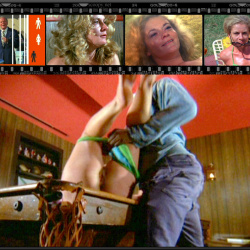
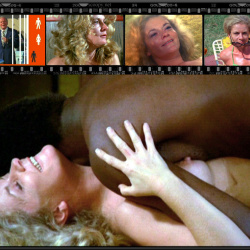
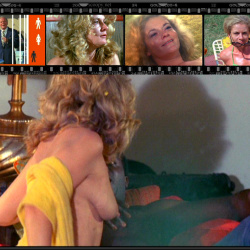
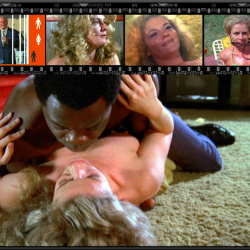
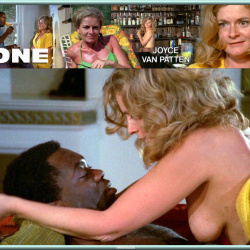
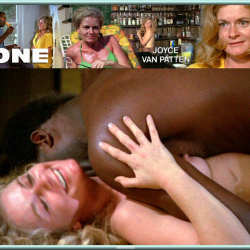
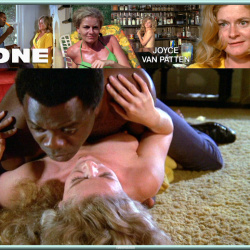
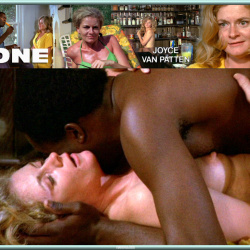
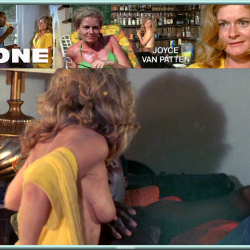
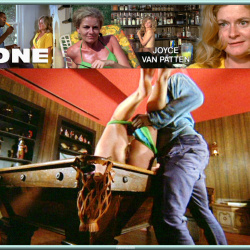
I didn’t much care for this typical early-70s counter-culture film. It’s essentially two separate stories. I found the husband’s tale to be a complete drag, and while I did like the wife’s half, I didn’t like it enough to recommend the film to anyone else. On the other hand, Tuna loved the film. Our reviews follow after the jump
===
===
Scoop’s notes:
Bone isn’t Citizen Kane, but it’s not a totally awful film either. The problem is that it had absolutely no audience. The film’s distributor, Jack Harris, tried to market it in the white suburban theaters – no luck. Then he convinced director Larry Cohen to try marketing it in the “black film” circuit – no luck. Cohen was convinced it could be promoted as a comedy, so he invested a great deal of his own money (he had just sold a script to a major studio) to do a trial market run in New York City, giving first billing to Jeannie Berlin, who played a minor role but had won a N.Y. Film Critics Award (and an Oscar nomination) for her supporting performance in The Heartbreak Kid. That failed. Art film? Failed again. Mr. Harris finally changed the name of the film to Housewife, and re-cut the trailer to make it sensational. (“This housewife will do anything for kicks.”). This change allowed him to sell the picture through the drive-in circuit as a second feature in a sexploitation twin bill.
Could this film come from any other era but its own (70s counter-culture)? It’s filled with confusing and unnecessary symbolism, sudden acid flashes to the lives of people unimportant to the film, scenes that might be real or imagined, heavy-handed satire of the suburban bourgeoisie, a murder in the sand dunes, classic anti-capitalist posturing, and a woman who prefers her black rapist to the conniving user car salesman she married. The representative of the white American business world is corrupt, materialistic, cowardly, and lacking in human decency. If I didn’t already know who directed this, I would have guessed Marco Ferreri. All it needs is Depardieu and a giant plaster ape.
After the first few minutes of the film, the white suburban couple gets split up and the script covers their stories separately, intercutting them until the last few minutes of the movie, when they find one another. The portion of the film with the wife (Joyce Van Patten) and her would-be rapist (Yaphet Kotto) is quite watchable. Their scenes gradually migrate from sexual menace to rapprochement to conspiracy, from melodrama to humor, with both characters developing as they interact. Those scenes can be suspenseful, funny, tender and sexy. The other half of the film, which follows the peregrinations of the sleazy husband, doesn’t spark any interest at all. Those scenes seem to ramble pointlessly, and are filled with uninteresting encounters with uninvolving characters, during which the satire always falls flat. Unfortunately, the husband’s adventures take far too long to unfold, thus dragging the film to the level of a pretentious arthouse endeavor.
Tuna’s notes:
Also known as Housewife, Dial Rat for Terror, and Beverly Hills Nightmare, Bone is a very dark comedy which explores the fantasies of a Beverly Hills couple (Andrew Duggan and Joyce Van Patten), and the black man who invades their home and holds the wife hostage. Yaphet Kotto – “Bone” – is able to enter their home and dominate them with no weapons of any kind. It is simply the fact that he is large and black that intimidates them completely, playing on the stereotype of the “scary black man.” In one of many interesting speeches, Kotto bemoans the fact that, with improved race relations, he has become an outdated stereotype, and people are no longer afraid of him. His original aim was robbery, but he finds that they not only have no cash, but are overdrawn on their bank accounts. Finally, he finds a secret bank account that Duggan has hidden from his wife. Duggan is sent to withdraw the money, while Bone holds his wife captive. The threat is that he will rape and kill her if he doesn’t get the money.
Duggan has second thoughts, goes to a bar, and ends up in bed with a cook. Kotto feels like he has to rape Van Patten now that Duggan has not shown up, but finds he can’t perform. At that point, Van Patten has a few drinks to fortify herself, then seduces Kotto. At that point, they become partners, and go after Duggan.
The film could be Kotto’s fantasy of having a rich white woman fall for him, or Duggan’s fantasy of getting rid of his wife, or Van Patten’s fantasy of a handsome, powerful black man seducing her. Then there was the couple’s son, who was actually in jail for hash smuggling in Spain, but whom they claim is in Vietnam. The film might be the fantasy of the son, imagining revenge on his parents.
Director Larry Cohen feels the film was never promoted as what it actually was, a comedy. I enjoyed it very much. Some of the scenes had me laughing out loud, such as the scene where Kotto and Van Patton are calculating exactly how they should maim or kill Duggan in order to get the most money from his life insurance policy. It was not the usual fare, and I had no idea what was coming next, which is a good thing, It was also very brave for its time, and the concept that black men are considered just plain scary because they are black is just as valid now as it was then.
It was Larry Cohen’s first film. Cohen shopped for distribution all over town with very little luck, but the film eventually made money on the drive-in circuit.
